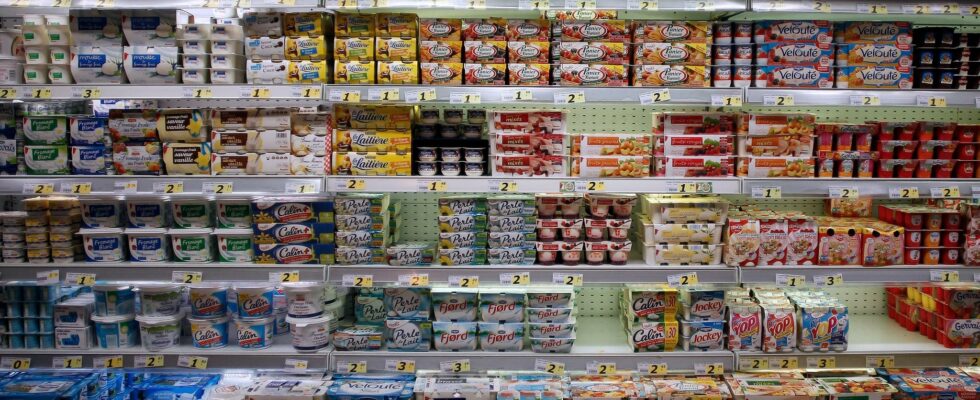The tone has once again risen a notch in the trade dispute between China and the European Union. Responding to the announcement of taxes on electric vehicles by Brussels, Beijing launched an investigation at the end of August into subsidies granted to certain dairy products from Europe. The stakes are high: the dairy sector represented 12% of European agri-food exports to China in 2023.
The European Commission then challenged the investigation with the World Trade Organization (WTO) at the end of September. But this escalation would surely not be enough to make China relent, which can afford to restrict its imports of dairy products without suffering major consequences, Jean-Christophe Bureau, professor of economics at AgroParisTech and associate researcher, explains to L’Express. at the Center for Prospective Studies and International Information (Cepii).
L’Express: China has just introduced a customs bond on cognac coming from Europe in retaliation for taxes on its electric vehicles. Can we envisage it implementing a customs tax on dairy products at the end of its anti-subsidy investigation ?
Jean-Christophe Bureau: This is indeed a serious threat, the investigation was launched to justify taking retaliatory measures subsequently. And it is no coincidence that China has chosen certain dairy products in particular, such as cheeses or creams with more than 10% fat: through this, it puts pressure on European countries for which it is a important export position – such as France, Ireland or the Netherlands. China has already shown in the past that it knows how to play very well on these European divisions.
We therefore risk a trade war, but in trade wars with China, the EU always loses because it cannot speak with one voice. And to challenge the implementation of a possible customs tax, it would be necessary to go through the WTO dispute settlement appeal body. However, it is today paralyzed, since the United States blocked the appointment of new judges.
Does the state of the Chinese dairy industry allow China to do without European imports?
The Chinese dairy industry is in a production surplus situation: the government has enormously subsidized the sector, to the point that today they have farms with 10,000 dairy cows – whereas in France we are at an average of around 70 cows per farm. The government thought domestic demand would follow, but that didn’t really happen. We have observed an increase in the consumption of milk powder and yogurt but this remains well below production.
“The prices of milk produced in China are very low and do not encourage as much importing.”
Large European companies, such as Nestlé or Danone, have instead targeted specific segments for export, such as children’s milk. However, it is not a growing market because there are fewer and fewer children in China. They are also trying to launch products for the elderly, but they are not at all used to consuming milk.
If a tax is put in place, which markets could European producers turn to to replace these volumes?
The outlets are quite limited because there are few countries which massively import dairy products. Historically, the largest consumer of European milk was the USSR, especially when Europe had a milk surplus in the 1980s. But when it disappeared, we had difficulty finding other markets. In Asia, for example, there is no habit of consuming milk, and in West Africa, there are entire populations who do not digest milk. In Latin America, the market is dominated by Argentina, which is a large producer.
In the event of a decline in imports from Europe, China would not necessarily replace these volumes with imports from other countries, such as New Zealand. The prices of milk produced in China are very low and do not encourage as much importing.
Could this investigation into European subsidies push Brussels to re-examine the relevance of our agricultural aid?
This is not at all on the agenda, our agricultural income depends enormously on aid. There is a form of political consensus around the common agricultural policy because of the importance of the agricultural vote. However, New Zealand, for example, has managed to do without subsidies; he is a very efficient producer.
.
